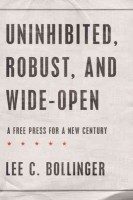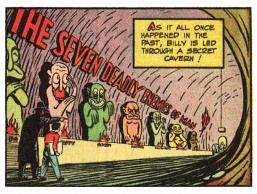Julius Genachowski is in a hurry.
He is arguing that the commission must act quickly to “restore the longstanding deregulatory—as opposed to ‘no-regulatory’ or ‘over-regulatory’—compact” that governed broadband Internet access services prior to a recent court decision. Such an approach is urgently needed to “restore the status quo,” he claims.
If the Federal Communications Commission cannot regulate the Internet, it may die. The telephone and television industries are declining, whereas communications industries which the FCC monitors to some extent but does not regulate, e.g., the Internet backbone, broadband Internet access and wireless, are thriving. The Internet, which the FCC cannot regulate, is subsuming legacy communications services which the commission can regulate. That spells doom for legacy regulation. Career regulators are worried.
Genachowski’s plan would reclassify broadband as a “telecommunications” service subject to blunt, onerous, industrial-era regulation under Title II of the Communications Act of 1934 – which governs common carriers – and then forbear from enforcing most of Title II’s heavy-handed provisions.
Broadband services haven’t been subject to Title II regulation for several years, so reclassification would not restore the status quo. It would harken back to a bygone era.
Broadband services provided by cable operators have thrived in the absence of common carrier regulation since before 1999, when William E. Kennard (designated FCC chairman by President Bill Clinton) declared:
If we’ve learned anything about the Internet in government over the last 15 years, it’s that it thrived quite nicely without the intervention of government.
If fact, the best decision government ever made with respect to the Internet was the decision that the FCC made 15 years ago NOT to impose regulation on it. This was not a dodge; it was a decision NOT to act. It was intentional restraint born of humility. Humility that we can’t predict where this market is going.
Though under significant pressure to do so, Kennard refused to regulate broadband services provided by cable operators like the broadband services provided by telecommunications carriers. In 2005 and 2007, respectively, the commission finally admitted that neither telecommunications carriers nor wireless providers provided broadband services that met the statutory definition of a “telecommunications” service under Title II, either.





 The Technology Liberation Front is the tech policy blog dedicated to keeping politicians' hands off the 'net and everything else related to technology.
The Technology Liberation Front is the tech policy blog dedicated to keeping politicians' hands off the 'net and everything else related to technology.